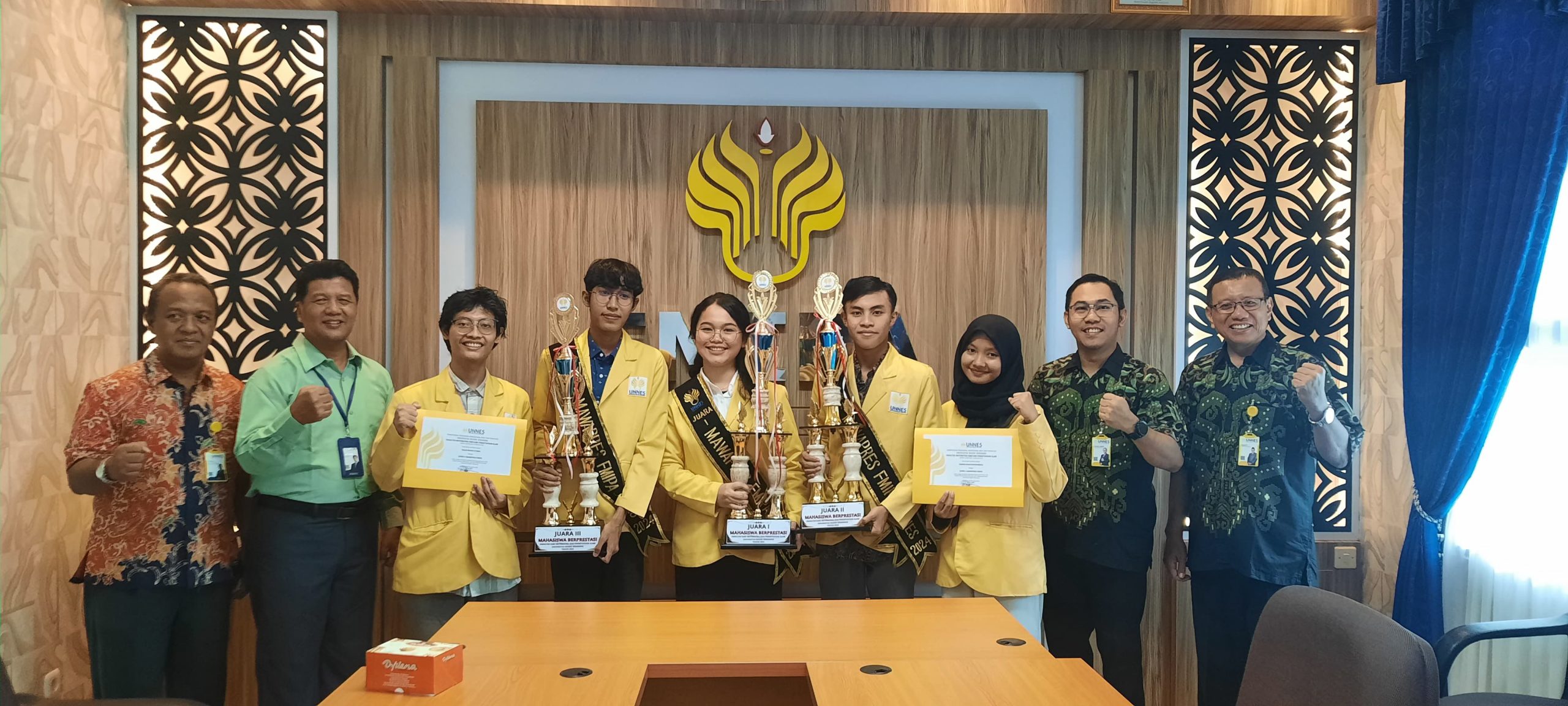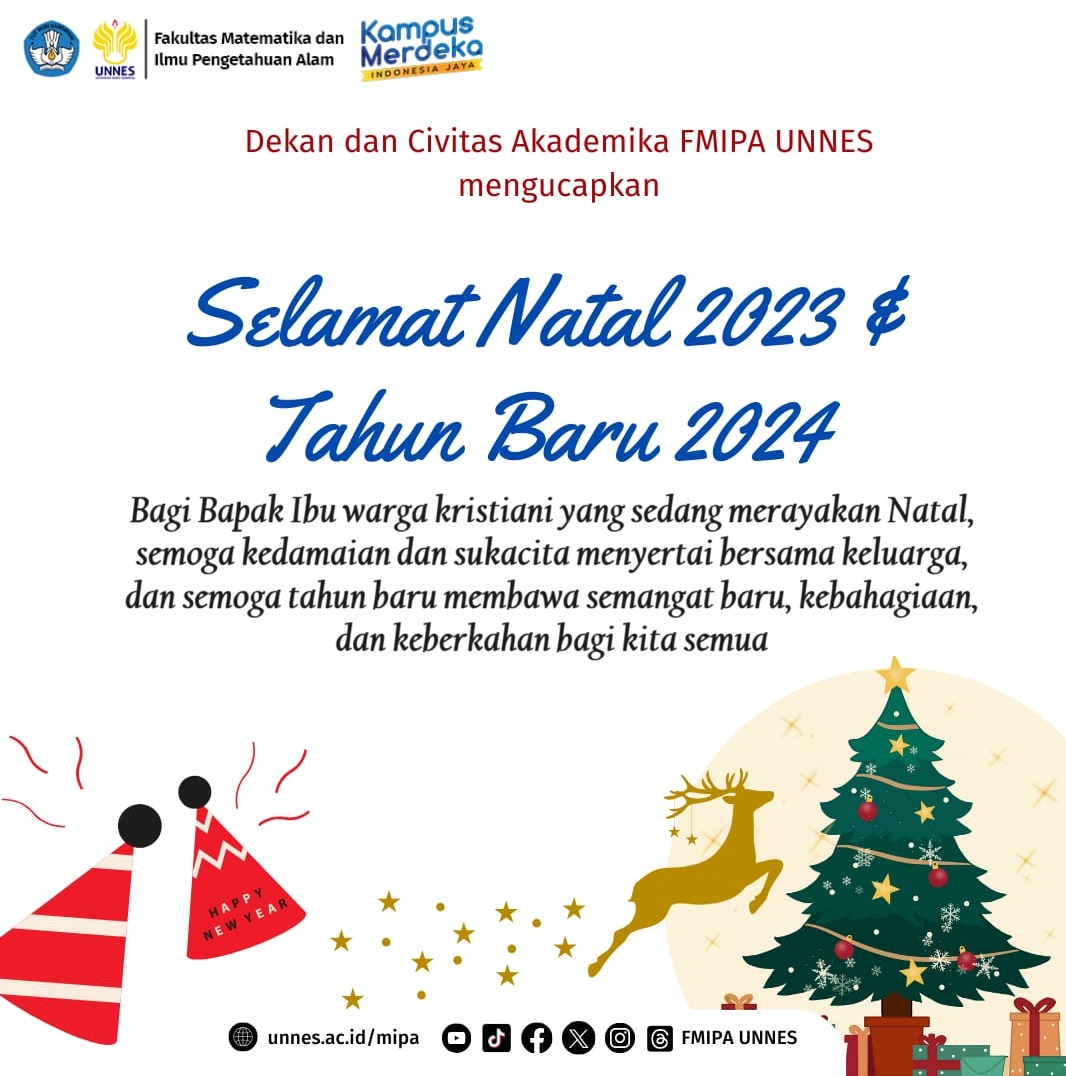
Hari Jum’at tanggal 28 Oktober 2022, Pusat Kajian Etnosains UNNES yang dikepalai oleh Prof. Dr. Sudarmin, M,Si mengadakan kegiatan Guest lecturer dengan tema “Menumbuhkan Literasi STEM pada Siswa sebagai Upaya Menciptakan Generasi Emas 2045“. Dalam kegiatan ini Pusat Kajian Etnosains UNNES menghadirkan Ibu Irma Rahma Suwarma, S.Si, M.Pd, Ph.D selaku dosen Universitas Pendidikan Indonesia (UPI) dan merupakan kepala STEM Education Centre UPI sebagai pembicara utama. Materi berikutnya disampaikan langsung oleh Kepala Pusat Kajian Etnosains UNNES yakni Prof. Dr. Sudarmin, M, Si sebagai pembicara 2 disusul oleh Bapak Hery Sutarto, S.Pd, M.Pd sebagai pembicara 3, serta hadir pula Prof. Dr. Sarwi Wakil Kepala Pusat Kajian Etnosains UNNES sekaligus ketua panitia pada kegiatan ini. Dalam sambutannya, beliau menyampaikan apresiasinya kepada peserta yang berjumlah hampir tembus angka 800 peserta. Kegiatan ini dibuka secara resmi oleh Dekan FMIPA UNNES yang diwakilkan oleh WD 1 Dr. Masrukan, M.Si.

Dalam presentasinya, Ibu Irma Rahma Suwarma, S.Si, M.Pd, Ph.D menjelaskan tentang apa yang sebenarnya diharapkan dari generasi emas indonesia dan bagaimana kondisi yang akan dihadapi oleh generasi emas indonesia di tahun 2045 dengan mengidentifikasi megatren dunia tahun 2045 mendatang. Pendidikan STEM pada siswa menjadi solusi dalam menyiapkan generasi emas indonesia yang dapat beradaptasi dengan megatren dunia 2045. Beliau juga menjelaskan bahwa ada dua karakteristik STEM Education diantaranya, pertama, siswa yang telah diberi STEM Education merupakan seorang yang mampu memecahkan masalah (Problem solver), berfikir logis, paham teknologi, dan mampu mengaitkan kebiasaan siswa tersebut dalam belajar, kedua, sekolah yang mengacu pada STEM Education menjadikan literasi STEM sebagai prioritas dan menjadikannya sebagai budaya bagi seluruh siswa, mempunyai kurikulum yang mendukung pembelajaran STEM.

Prof. Dr. Sudarmin, M.Si menjelaskan bahwa saat ini pembelajaran berbasis phenomena (phen BL) literasi STEM, dan Etno STEM, sangat relevan dengan apa yang dijelaskan oleh Ibu Irma pada sesi 1. Pendekatan berdasarkan phenomena ini merupakan lanjutan dari penelitian beliau yakni tentang inkuiri. Prof. Dr. Sudarmin, M.Si menekankan bahwa yang menarik pada pendekatan ini adalah bagaimana mengajarkan literasi STEM dan Etno-STEM melalui phenomena-phenomena yang terjadi. Guru sangat dituntut untuk selalu inovatif dalam proses pembelajaran. Beliau juga memaparkan bahwa ada 5 hal yang menjadi poin penting dalam pembelajaran berbasis phenomena based learning yakni inquiry based, interdisciplinary, collaborative, hands on, and technology rich.

Bapak Hery Sutarto S.Pd, M.Pd sebagai pembicara ketiga menjelaskan bahwa mengajarkan STEM kepada siswa dapat dimulai dari hal-hal yang sangat sederhana yang ada dirumah. Lebih jauh beliau menjelaskan bahwa STEM tidak hanya tentang konten/konteks dan skills saja namun juga tentang pengalaman pendidikan (educational experiences). Selaku dosen matematika di Universitas Negeri Semarang, beliau juga menjelaskan peran matematik pada STEM. Ada 2 hal peranan matematik pada STEM yakni: a tool for STEM and resources for STEM. Bapak Hery Sutarto S.Pd, M.Pd juga memberikan beberapa contoh STEM rumahan yang dapat membuka wawasan peserta guest lecture yang hadir.

Kegiatan ini dipandu dari awal hingga akhir oleh Ibu Helina Pancawardhani, S.Pd yang merupakan mahasiswa magister pendidikan kimia UNNES dan semua pemateri dimoderatori oleh Ibu Ratna Kumala Dewi, M.Pd alumni magister pendidikan kimia UNNES yang saat ini mengabdikan diri menjadi salah satu dosen biokimia di UIN Tulungagung. Kegiatan ini dihadiri oleh mahasiswa dan dosen dari berbagai universitas seperti UNNES, UPI, UM, UNP, UIN Tulungagung, dan institusi lainnya seperti guru atau pendidik yang telah menyempatkan hadir. Kegiatan ini diharapkan dapat memberikan tambahan wawasan bagi mahasiswa, dosen dan guru dalam melahirakan generasi emas 2045 yang mengacu pada literasi STEM.




